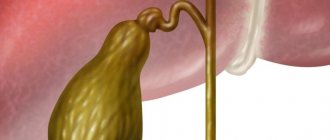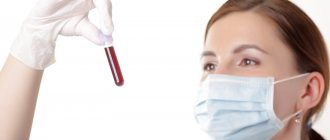Read also
In any case, we must not forget about the harmful effects of strong drinks and large doses of alcohol on a woman’s reproductive system, as well as on the activity of the endocrine glands and other organs. The duration of the cycle and its regularity are of great importance, since they determine whether a woman can get pregnant and give birth to a healthy child, and whether she will have any complications during pregnancy and childbirth. The functioning of the reproductive system is affected by any adverse external influence, including alcohol intake.
With the help of light alcohol during menstruation, some women can smooth out unpleasant symptoms. For others, on the contrary, the headache intensifies, the volume and duration of discharge increases
General information about menstruation
Menstruation is a spontaneous natural process in a woman’s physiology. Menstruation begins at the age of 11–15 years and ends at approximately 50–55 years. This phenomenon indicates that the lady’s body is disposed to conceive and give birth to a child.
Some girls lead a normal life during menstruation, and nothing bothers them. Others experience rather unpleasant sensations, usually pain in the abdomen and back. Sometimes a woman these days may suffer from headaches and discomfort in the mammary glands.
How does alcohol affect a woman's body?
The state of intoxication that occurs when drinking alcoholic beverages is a consequence of the effect of ethyl alcohol on the brain. Here are the centers that control emotions, behavior, and reflex activity of the body. The pituitary gland produces hormones that, in combination with hormones from the ovaries and adrenal glands, determine the functioning of the reproductive system. Alcohol has the following effects on the body:
- If you drink it a little and rarely, it can dilate blood vessels;
- Constantly taking large doses of alcohol causes the heart to work under great strain. This affects the condition of blood vessels. Their structure may change. Dangerous narrowing (cause of increased pressure) or expansion (possibility of stroke or changes in the veins in the legs);
- Hormonal changes that occur under the influence of ethyl alcohol on the endocrine glands can affect the duration of the cycle, its regularity, and the volume of menstruation.
Consequences of drinking alcohol during menstruation
The centers of the human brain react to ethanol in such a way that a feeling of intoxication appears - this is what people experience after drinking alcohol. Ethanol is able to modify the formation of reproductive hormones. It also affects blood vessels. A significant dose of alcohol narrows them, and a small dose expands them. Such exposure can lead to cerebral hemorrhage, hypertension, and varicose veins.
Modifications in the content and production of hormones due to alcohol lead to various disruptions in the normal menstrual cycle. Menstruation may become irregular, too scanty, or, conversely, heavy. The time interval between them varies significantly.
As a rule, pain in the lower abdomen during menstruation is quite normal. But if it is too strong, this may indicate the presence of inflammatory processes or localization of neoplasms on the organs of the reproductive system. This is why it is very difficult to recognize the presence of a serious illness if you drink alcohol during your period.
Drinking alcoholic beverages to reduce pain symptoms directly during menstruation, instead of providing relief, can lead to the opposite result. If a woman experiences pain when she has her period, then alcohol can increase the pain syndrome. Especially if the pain is localized in the lower abdomen.
You should not drink during menstruation if a woman has gynecological diseases. It is safe to say that alcohol causes an exacerbation of existing diseases.
During menstruation, natural hormonal fluctuations occur, which affect the psycho-emotional state of a woman. If you try to correct the situation by resorting to alcohol, you will get the opposite effect. In the first minutes, alcohol has a stimulating effect, and then there is a sharp decline - a “suppression reaction”. Which leads to a deterioration in mental condition, and even the appearance of depression.
The functions of the body, and the organs of women, differ from those of men. Such is nature that men do not give birth to children; women carry them and give birth to them. Therefore, the main advantage of the female body is its reproductive system. Alcohol not only spoils a woman’s mental state, but also prevents her from giving birth to a healthy child. Therefore, you should pay attention to your body and the intake of alcoholic beverages, because the same amount of alcohol consumed will cause more harm to a girl or a guy.
The effect of alcohol on the course of menstruation
Alcohol can affect your periods in different ways. What plays a role here is what drink is consumed and in what quantity. Also, the effect of alcohol will depend on the woman’s general health level.
The property of alcohol is to have a dilating effect on blood vessels, and, as a result, accelerate blood circulation. Thus, a woman loses more blood due to heavy bleeding caused by drinking alcohol.
The duration of menstruation may increase by 1–2 days.
Alcohol also affects the menstrual cycle. Menstruation may begin ahead of time or, conversely, come with a delay. That is, the cycle may become irregular. Which can bring additional problems for a woman, especially if she has an active sex life.
Alcohol also affects kidney function and delays the removal of fluid from the body. During menstruation, fluid retention in the body and swelling are a common phenomenon. And drinking alcohol can aggravate the situation with swelling.
Drinking alcohol together with painkillers is also very dangerous. If a woman drank an analgesic or antispasmodic to relieve a headache, pain in the lower abdomen or lower back, and then decided to consolidate the effect of the medicine with an alcohol-containing drink, this combination is fraught with the loss of a large amount of blood and an attack of hypertension.
In addition, due to the interaction of tablets and alcohol, disturbances in the functioning of the intestines and stomach may occur, and allergy attacks may occur. Sometimes the opinion that after drinking alcohol during menstruation the mood will improve and anxiety will go away is refuted by a completely opposite factor - the condition becomes even worse than it was.
The reason for this is the feeling of joy caused by the effect of ethanol on the central nervous system, which quickly disappears and anger and sadness appear. In addition, everyone knows that a woman becomes intoxicated more quickly, and she gets drunker than the stronger half of humanity. And this is fraught with unpleasant consequences from external sides - quarrels with loved ones, injuries, unpleasant situations.
What happens in a woman’s body when she drinks alcohol during her period?
If a woman is healthy, then menstruation occurs regularly, on average, after 28 days. Individual deviations are possible, but normally the cycle should not be less than 20 days or more than 35 days. A delay of up to 40 days can occur as a result of nervous stress, a temporary increase in physical activity, or a trip to another city. The normal duration of menstruation is 2-5 days. What happens in a woman’s body if she drinks alcohol during her period?
If a woman finds herself in a situation where she has to drink light alcohol or beer in small quantities, then as a result of vasodilation, increased discharge can be observed. If menstruation has already ended, it may resume for another 1-2 days.
Grandmother's recipe for the treatment of Alcoholism To get out of binge drinking you need every day... Reviews My story bezalkogolya.ru
Treatment of alcoholism according to the method of Elena Malysheva Alcoholism can be cured! It is necessary every day... Elena Malysheva’s website Interview with a doctor malisheva.ru
How to save your husband from binge drinking? Real story To get rid of binge drinking without the knowledge of an alcoholic... Official website Recovery zapoyu.net
During menstruation, women may experience headaches, breast swelling and painful sensations.
During menstruation, women may experience headaches, breast swelling and pain. Most often, menstruation is accompanied by nagging pain of varying intensity in the lower abdomen and lumbar region. The appearance of such symptoms can be explained by contraction of the muscles of the uterus, as well as changes in nerve tissues that occur under the influence of hormones. You can drink alcohol in small doses if the woman is sure that such pain is not a sign of disease. Dry red wine helps relieve stress, distract from unpleasant feelings, and improve sleep.
However, pain is often the result of serious inflammatory diseases of the uterus, ovaries, appendages, and can also occur due to the presence of a cyst or tumor. If you drink alcohol to reduce pain in such cases, you may not notice an exacerbation of the disease. Alcohol only dulls the pain. This can cause serious complications.
It is especially dangerous to drink alcohol if a woman takes painkillers for pain during menstruation. The body's reaction to their combination can be unpredictable (allergies, a sharp decrease or increase in pressure, increased bleeding is possible, and even a delay will occur).
In addition to unpleasant physical sensations, before menstruation women may experience a depressive state: they want to cry, they feel irritability and resentment. Should I drink alcohol in this state? Does beer help relieve nervous tension? Most likely, the mood will become even worse, since with the help of light alcohol you can only cause a very short-term euphoria, and then the production of the “pleasure hormone” in the brain stops.
The whole truth: how alcohol affects your periods
The fact that alcohol (especially beer and spirits) negatively affects the female body is irrefutable. Some exception is allowed for dry red wine. Moreover, the safe dose for the average female weight is 70 ml per day. But often women during PMS and during menstruation drink alcoholic beverages in much larger dosages. The reason for this is the desire to reduce pain in the lower abdomen and normalize mood. Unfortunately, this is not always safe.
The question of whether it is possible to drink alcohol during menstruation has not yet been given a definitive answer. Some doctors absolutely prohibit it during this period of the female cycle. Others cannot prohibit something that supposedly helps patients reduce pain. There are experts who, on the contrary, recommend taking 100-200 grams of alcohol for women whose periods are too painful.
The main effects of alcohol on a woman’s body during menstruation can be described as follows:
- Dilates smooth muscle vessels. This especially applies to cognac and vodka. Moreover, if cognac first expands the lumen of blood vessels and then spasms it, then drinking vodka leads to persistent dilation of the vessel, and as a consequence, blood supply to the organ. For a bleeding uterus, this can lead to more discharge and even actual bleeding. Moreover, at first it may seem that your periods have stopped, and then they will begin with even greater force (they will become heavy periods).
- Toxic effect of ethanol on the liver. One of the stages of the transformation of estrogen (the main female hormone) occurs in the liver. Permanent damage to her tissue will cause the woman to lose a significant portion of her body's estrogen. Namely, this hormone is responsible for beauty, youth and external attractiveness.
- Entry of hormones into the body from outside. During the production of some types of beer, small amounts of free estrogens are formed. If you consume this drink excessively, you may encounter the negative effects of a high concentration of estrogen in the body: abdominal obesity, pathology of the kidneys and pancreas.
- The effect of addiction (attachment) to alcohol. Its constant use to ease the flow of menstruation leads to the fact that a woman becomes psychologically unable to continue to endure her critical days without “doping” in the form of alcoholic beverages.
On the one hand, with so many dangerous side effects of alcohol, the answer to the question “is it possible to drink alcohol during menstruation” becomes clear. But what about those representatives of the fair sex for whom alcoholic drinks during PMS and on menstrual periods are a real salvation?
Hello, Angelina, 20 years old. Why shouldn't you drink alcohol during your period? A glass of cognac before meals in the first two days of my period helps me a lot.
Good afternoon, Angelina. I would not recommend that you drink strong alcohol to relieve pain, especially in such quantities. There are other ways to eliminate pain. Please contact your gynecologist so that a specialist can select an effective pain relief method for you.
The effect of alcohol on the functioning of the genitourinary system during menstruation
During menstruation, the risk of bacteria entering the internal genital organs (fallopian tubes, uterus, ovaries), as well as the urinary organs (bladder, ureters, kidneys) increases. Often during menstruation, pain occurs in the bladder area, and frequent and painful urination occurs. Chronic cystitis worsens during menstruation. Is it possible to drink alcohol in this state? The answer is clear - no. And here's why you shouldn't do this: alcohol has diuretic properties, which will worsen your symptoms. Frequent painful urination affects the condition of an inflamed bladder. It may be irritated by alcohol. If cystitis appears between menstruation, its manifestations may be the cause of menstrual irregularities. A significant delay in menstruation is possible.
Often during menstruation, pain occurs in the bladder area, and frequent and painful urination occurs. Is it possible to drink alcohol in this state? The answer is clear - no.
Beer and something stronger
Unlike red wine, beer and strong alcohol are prohibited during menstruation. It’s hard to call beer a cure for anything. This is only an extra load on the kidneys, which causes too much fluid in the body. In addition, during menstruation, various types of fermentation pose a danger. In particular, beer leads to its formation in the gastrointestinal tract.
Ethanol, a component of beer along with other ingredients, is a toxin for the body. If you drink a couple of glasses of beer during menstruation, you may encounter the formation of low-quality blood, which will remain in the body throughout the next cycle and it is not a fact that it will come out during it. This often causes imperfections to appear on the skin, so it is better to avoid drinking beer during menstruation.
Strong alcohol is also on the list of prohibited drinks during menstruation. Cognac dilates blood vessels. For a while, this, of course, will allow you to get rid of pain, stress and feel a surge of joy, but as soon as it is eliminated by the body, all this will return in the same, and maybe even greater volume. In addition, a sharp narrowing of blood vessels leads to ruptures of capillaries, from which the so-called “stars” are formed.
Of course, there are a number of additional points when it comes to alcohol addiction. When the body receives alcohol on a regular basis, it already gets used to it; after a sharp deprivation of doping, you can fall under the influence of withdrawal syndrome, which sometimes ends in a nervous breakdown. In this case, it is better to seek help from a narcologist, or even better to go to a hospital for treatment.
https://youtu.be/Vvx4Fz_NuhU
Features of drinking alcohol during menstruation
Alcohol should not be consumed in the following cases:
- Heavy and prolonged bleeding during menstruation;
- Frequent delay of menstruation;
- The period between menstruation is too short;
- Cystitis;
- Painful menstruation. This symptom may be the result of serious illnesses. It is necessary to establish the cause of the pain; it cannot be drowned out with alcohol. There may be serious consequences.
Why is it sometimes okay to drink alcohol during your period? If a woman is healthy, then light alcoholic drinks can be beneficial in minimal quantities. Red wine helps relax the nervous system and promotes hematopoiesis. To understand why a small glass of red wine is good for your period, you need to remember that your period is associated with blood loss. With significant blood loss, anemia may occur. Dry red wine can help avoid this.
Is it possible to drink strong alcohol during menstruation?
We can answer unequivocally that during menstruation you should not drink strong alcohol. Such alcohol is generally contraindicated for the female body. Its harmful effects with long-term use affect every organ.
Some women with very severe PMS (premenstrual syndrome) resort to drinking strong alcohol to reduce the symptoms of the disease, normalize their mood and remove excessive anxiety before menstruation. Often, such a desire leads, on the contrary, to increased PMS symptoms. Drinking strong alcohol is a trigger for sudden mood swings, headaches and, on the contrary, aggravates a woman’s condition.
Good afternoon, Tatyana, 26 years old. A week ago I overdid it with strong alcohol. Now there is a delay of menstruation by 3 days. Tell me, can menstruation be missed due to alcohol? Thank you.
Hello, Tatyana, the cause of menstrual cycle disruption and delay can be either an unplanned pregnancy or excessive alcohol consumption. I recommend that you do an ultrasound of the pelvic organs, and also, in case of a week’s delay, conduct an express pregnancy test.
Is it possible to drink alcohol during menstruation?
The opinion of professional doctors on this issue is categorical - alcohol and menstruation are incompatible, and consuming it is strictly prohibited!
It is worth mentioning separately this method of accelerating menstruation, such as red wine and a hot bath. This old woman’s method has been popular among people for a long time; moreover, some even use it to terminate pregnancies in the early stages. It’s impossible to count how many women have paid with their health and even their lives for such a frivolous attitude towards their health.
Attention!
Drinking wine while sitting in hot water is life-threatening!
Regardless of the day of the cycle and even gender! Some also believe that drinking hot beer helps with period pain. In fact, this method has no therapeutic effect. Yes, a hot, intoxicating drink actually relaxes and slightly dulls pain due to the inhibition of mental reactions during intoxication. Otherwise, its effect on the female body is the same as that of other alcoholic drinks - dilation of blood vessels and, as a result, increased bleeding.
Useful tips and tricks
During menstruation, it is better to refrain from strong alcoholic drinks such as cognac, whiskey, vodka, brandy and rum. They are advised to replace them with not very strong alcohol. Is it possible to drink wine during menstruation? Yes, but you should opt for red varieties , for example, you can drink a glass of red dessert wine, since this variety has the least negative effect on the female body.
But you should avoid mixing different drinks, as their combination can lead to a stressful state. To reduce the negative effects of alcohol on the body during menstruation, experts first of all recommend:
- Remove drinks containing caffeine from your diet, as it has a significant effect on the cardiovascular system;
- Quit nicotine. It can cause uterine spasms, especially when combined with alcohol;
- Eliminate unhealthy and fatty foods from your diet so as not to burden the digestive system. It is advisable to eat light meals such as vegetable salads, meat, steamed fish and fruits;
- Drink no more than one glass of dry or dessert wine per day;
- Walk in the fresh air more often, but do not overexert yourself;
- And you should also not drink beer and similar drinks, since there is practically nothing useful in them, it only puts extra strain on the kidneys and stomach;
To cleanse the body of harmful substances and improve its functioning, you need to drink more water and green tea. This helps relieve unpleasant cramps and reduce bleeding.
What to do if you can’t, but really want to
If all the above arguments are not convincing at all, or there is an event planned that you don’t want to miss, then the negative impact can be minimized. And this is not to swallow activated carbon mixed with butter before drinking, but, first of all, to adhere to moderation in libations. And secondly, give preference to a drink with a minimum alcohol content, and, if possible, completely abandon strong drinks.
Safe doses of alcohol during menstruation (including painful and heavy periods) are:
- a glass (150-200 ml) of dry wine or champagne;
- glass (330-500 ml) of light beer;
- a glass (50-70 ml) of strong alcohol, which includes vodka, cognac, whiskey, tequila, absinthe, etc.
It is also recommended to refrain from smoking. Nicotine constricts blood vessels, alcohol dilates them, this will not lead to a balance of blood flow, but, on the contrary, to even greater problems with blood vessels.
Why you need to give up alcohol during your critical days
Disturbances in the duration, intensity and structure of menstrual flow as a result of exposure to ethyl alcohol do not occur in every woman. Ladies with a strong vascular and hormonal system claim that they can easily drink a little alcohol without any consequences. However, this does not mean that alcohol is harmless and acceptable.
Narcologists pay attention to another pathological effect of alcohol associated with its processing in the body. Acetaldehyde begins to be released into the blood after another dose of alcohol within 5–10 minutes. Liver enzymes break down alcohol quickly, but its metabolite continues to circulate in tissues and biological fluids for several days.
The organs that the toxin hits hardest are: the brain, heart, kidneys, bladder, genitals. In this case, the type of drink is unimportant. Only the amount of ethanol is significant. Since critical days are a real test for the female body, combining wine and menstruation is unacceptable.
A hangover as a result of drinking always occurs, despite the claims of some people that they do not suffer from it. Signs of intoxication may be erased, but this does not mean that there are no changes in the body. From the central nervous system it is:
- slowdown of all types of reactions, perception, ability to adequately perceive and process information;
- headaches, tinnitus, dizziness, vestibular disorders;
- tremor.
General dehydration, which causes thirst, interferes with the normal outflow of secretions from the uterine cavity. The functioning of the kidneys and ureters is disrupted, and excess water accumulates around the internal organs. A paradox appears: at the same time, the body suffers from a lack of fluid and swelling. This is a consequence of a lack of potassium salts, which are excreted after drinking.
The peculiarities of female physiology are such that they contribute to increased internal edema as a result of alcohol consumption. It may take several days to eliminate them during menstruation.
If you drink alcohol regularly, this eventually causes the development of chronic kidney inflammation.
See also: Is it possible to do an MRI during menstruation?
Another danger of strong drinks for women is an increase in the resistance (insensitivity) of the pancreas receptors to glucose. During menstruation, this reaction occurs more often. As a result, a carbohydrate metabolism disorder develops, obesity occurs, and diabetes mellitus may begin. A similar picture is more likely in women with unfavorable heredity.
The main reason why you should not drink during menstruation is the likelihood of subsequent hormonal disruption and irreversible consequences, including infertility.










